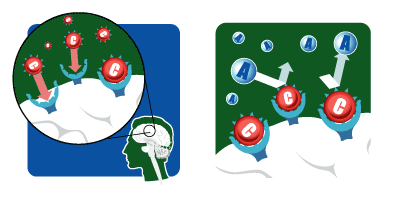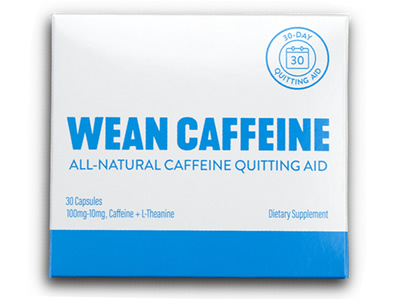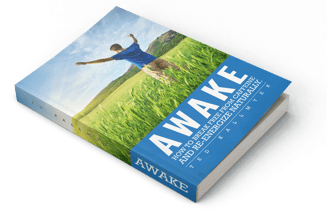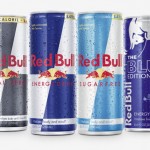Caffeine Withdrawal Symptoms: Top Fifteen
Caffeine withdrawal is no laughing matter and can be very debilitating for those who are suddenly without caffeine.

If you are or have been an avid coffee or energy drink consumer then you are aware of how addictive caffeinated beverages can be.
Just a few hours after missing your scheduled dose the caffeine withdrawal symptoms start to set in.
If you’ve ever attempted to quit caffeine without a proper caffeine detox program like Wean Caffeine, then you know how difficult and painful quitting caffeine can be. Typically the more caffeine a person consumes, the greater the intensity and duration of the withdrawal.
Here are the most common caffeine withdrawal symptoms. You’ll be comforted to know that you aren’t really dying but just detoxing from the caffeine.
Even if you aren’t normally a caffeine drinker, you may experience symptoms when quitting caffeine even if only consumed for a few days in a row.
Top 15 Caffeine Withdrawal Symptoms
-
Headache
A caffeine headache usually starts behind the eyes and then moves up the front of the head. -
Sleepiness
This just isn’t your normal tiredness, this is sitting up straight but still can’t keep your eyes open tiredness. -
Irritability
Everyone and everything gets on your last nerve. It’s best just to lock yourself in your room during this stage. -
Lethargy
Forget about productivity at this stage because you’ll be unmotivated to do anything from the feeling of the lack of energy. -
Constipation
Caffeine stimulates the bowel, so without its daily dose, the colon gets a little cranky too. -
Depression
Caffeine withdrawal can take away all hope for living. Temporary blues are one thing, but if you already struggle with depression this could be a big issue. -
Muscle Pain, Stiffness, Cramping
If you normally have some caffeine prior to exercise then during caffeine withdrawal you could feel as though your muscles have weights strapped to them. -
Lack of Concentration
Forget school, studying, brain surgery, or jet engine repair during this stage of withdrawal. -
Flu-like symptoms
A stuffy nose, blocked sinuses, and sinus pressure have all been reported by people withdrawing from caffeine. -
Insomnia
Some people actually can’t sleep when going through caffeine withdrawal. -
Nausea and Vomiting
Some people can’t even think about food the first couple days of withdrawal which compounds the feeling of lethargy. -
Anxiety
In some people, caffeine actually causes anxiety, but in others, withdrawing from the drug can cause feelings on anxiety and even panic attacks have been reported by some. -
Brain Fog
Withdrawal can cause some people to experience brain fog which is described as the difficulty of having coherent thoughts, difficulty thinking, and the difficulty of doing common tasks. -
Dizziness
Caffeine withdrawal can cause some people to lose their sense of equilibrium. -
Heart Rhythm Abnormalities
Since caffeine also stimulates the heart muscle, some people experience changes in their heart rhythm during withdrawal. Both low blood pressure and even palpitations have been reported.
Detoxing is No Laughing Matter
Caffeine withdrawal is a very unpleasant experience.
The symptoms of withdrawal only last a few days to a week for light caffeine consumers but can last 2 months or more for those that had been consuming around 1000 mg or more daily. However, even for the heaviest of consumer the worst symptoms subside after about a week’s time.
Even after the withdrawal period is over, many still never feel quite as good as they do when they’re drinking caffeine all of the time. Some believe that caffeine permanently alters one’s brain chemistry.
This is most likely due to the changes that occur with dopamine levels in the brain because of the daily caffeine.
Caffeine CAN be Addictive
How addicted to caffeine are/were you?
You can take our Caffeine Addiction Diagnosis Quiz to see where you rank. This may explain why your caffeine withdrawal has been so rough.
Human beings can be addicted to anything – including caffeine. Whether dependency or addiction, the reality is that for many, stopping caffeine consumption is very difficult.
Whether you should or not depends on how your habits are affecting your own health, your relationships, or the people around you.
For most people, their regular coffee habit may not affect any of these things.
Reducing the Impact of Caffeine
There is some research indicating products that contain rutaecarpine can actually reduce the impact of caffeine. They do this by assisting with caffeine metabolism. Learn more here .
The Science of Withdrawal

- Caffeine is addictive because the molecule itself fits so perfectly into our brain’s adenosine receptors.
- Adenosine is responsible for telling the brain when it is time to rest or sleep.
- Since these receptors are blocked with caffeine molecules, dopamine (the feel-good chemical) works more efficiently. The excess adenosine signals the adrenal glands to release adrenaline, which further perpetuates the feeling of alertness.
- Over time, the brain adds more adenosine receptors to compensate for the caffeine, which causes a “tolerance” to build up to the caffeine molecule.
- When a person misses or decides to quit their usual caffeine dosage, the brain is then flooded with adenosine and dopamine levels drop drastically causing the brain’s chemistry to be out of balance.
- The increased adenosine plus a drop in adrenaline levels leads to some of the caffeine withdrawal symptoms listed above.
Easing The Symptoms
For those that are going through caffeine withdrawal, there are a few things that can be done to ease the symptoms and allow for more productivity.
-
Gradually ease back – If you are consciously giving up caffeine, it may be wise to gradually wean yourself off of caffeine opposed to going cold turkey. We recommend Wean Caffeine as a systematic and precise way to gradually reduce your caffeine consumption to zero over a 30 day period.

- Take pain relievers – Taking aspirin, ibuprofen, and Tylenol can also help ease headache and muscle pain symptoms associated with withdrawal.
- Drink plenty of water – Staying well hydrated is key during the withdrawal process and will help you feel better.
- Get plenty of rest – It’s helpful to plan for your withdrawal during a weekend or a time when productivity isn’t a necessity. Sleeping a lot the first day or two is pretty common.
- Exercise – Most people won’t feel like exercising, but it will actually make you feel better. Exercise causes the release of dopamine, which is now in short supply in the absence of caffeine. You’ll need all the dopamine you can get, so get moving.
- Eating healthily – Improving your diet will also help. Eating plenty of fresh vegetables and fruits will provide your body with the nutrition it needs thus delivering natural energy and promoting a more positive frame of mind.
In any event, just remember that withdrawing from caffeine is hard and takes time. Soon you’ll be caffeine-free and will be able to experience life without the daily influence of caffeine.
Have you experienced caffeine withdrawal symptoms that aren’t on the list above? Share them in the comments below.

Get Help Quitting Caffeine
Reduce your caffeine intake without pain and discomfort.
Download our FREE ebookReferences
- Juliano, L. M., & Griffiths, R. R. (2004). A critical review of caffeine withdrawal: empirical validation of symptoms and signs, incidence, severity, and associated features. Psychopharmacology, 176(1), 1-29. Study
- Silverman, K., Evans, S. M., Strain, E. C., & Griffiths, R. R. (1992). Withdrawal syndrome after the double-blind cessation of caffeine consumption. New England Journal of Medicine, 327(16), 1109-1114. Study pdf
- Rogers, P. J., Heatherley, S. V., Mullings, E. L., & Smith, J. E. (2013). Faster but not smarter: effects of caffeine and caffeine withdrawal on alertness and performance. Psychopharmacology, 226(2), 229-240. Study
- Budney, A. J., Brown, P. C., Griffiths, R. R., Hughes, J. R., & Juliano, L. M. (2013). Caffeine withdrawal and dependence: a convenience survey among addiction professionals. Journal of caffeine research, 3(2), 67-71. Study
- Lack, L., & Johannson, K. (2013). Caffeine withdrawal: Cost or benefit?. Sleep Medicine, 14, e53. Study





